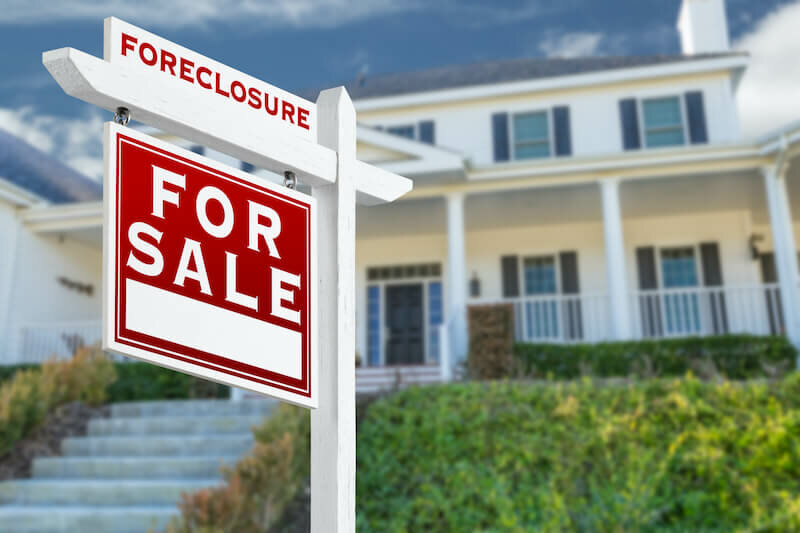Are you worried about losing your home? Many people have suffered financial hardship over the last few years. Your home is your sanctuary, and a foreclosure is the last thing you want. Thankfully, there are foreclosure laws that will protect your rights in the event of a foreclosure process.
The idea of your house in foreclosure can be overwhelming. You might feel like you are all alone, but you are not! Your stress might be eased knowing that a foreclosing on the house does not happen overnight. You always have options that you can consider to avoid foreclosure.
One option is selling a house to get out of debt, like using cash home buyers Fox Point owners are ready to get off their backs. You might not want to be a home seller at this point, but it might be the only way to avoid foreclosure. We will take a look at the Wisconsin foreclosure laws so you will be better able to navigate the process.

The Wisconsin Foreclosure Process
Most people that buy a residential property in Wisconsin sign a promissory note and a mortgage. These contracts help protect borrowers along with state and federal foreclosure laws. Most lenders do not enjoy foreclosing on a house, and they will work with homeowners to reach an agreement.
There are strict state laws that must be followed before a foreclosure process is considered. The lender must contact you by phone 36 days after a missed payment. This conversation will cover options such as loan changes, forbearance, or a repayment plan. These contacts will continue until the matter is resolved.
Within a 45-day time period, the lender must inform you in writing about your options, and they will appoint someone to help you avoid the foreclosure of your home.
Pre-foreclosure
Pre-foreclosure is the period after you fall behind on your mortgage payments but before the official foreclosure process begins. Your lender can charge you additional fees such as late or inspection fees during this time. In Wisconsin, lenders must send you a “breach” letter.
A breach letter informs the homeowner about impending foreclosure and offers ways to avoid foreclosure. One option is to complete a loss mitigation application. Homeowners must disclose their incomes, expenses, household members, and the nature of their financial hardship. Federal law requires lenders to work with homeowners to avoid the foreclosure process.
Foreclosure
A foreclosure in Wisconsin cannot officially begin until a homeowner is 120 days past due on their payments. If a homeowner cannot arrange an unacceptable payment schedule, the lender will start a judicial foreclosure.
A judicial foreclosure is when the lender asks the court for an order allowing a foreclosure sale. The homeowner will be served with a summons and complaint and have 20 days to respond to the complaint. Most people will also receive a notice about foreclosure mediation.
Wisconsin Foreclosure Mediation Network is available in most participating counties. This mediation program is an excellent opportunity for the lender and the homeowner to find an acceptable resolution.
If the homeowner does not answer, the lender will ask for a default judgment allowing them to continue with a foreclosure sale. You can choose to defend the foreclosure suit, but the judge tends to side with the lender if it has reached the courts. The circuit court will award a judgment of foreclosure to the lender.
Wisconsin law states that the notice of the sale must be advertised in the newspaper once a week for three weeks. In addition, the sale must be publicly announced and included on the county website three weeks before the sale.
Foreclosure Sale
The lender can offer up to the total amount owed at the foreclosure sale, including any additional fees. This is called a credit bid. The lender can also bid less.
If the lender is the highest bidder in Wisconsin, but the bid is less than the outstanding debt, the lender can get a deficiency judgment against the borrower. The homeowner will be responsible for paying the difference.
If the lender wins with the highest bid, the property becomes real estate owned. If a third party wins with a higher bid and there is enough money to pay off the existing liens, you are entitled to the surplus money from the sale price.
As a homeowner, you can stay in your home until the court approves the foreclosure sale. The order for the foreclosure sale usually includes an order directing the sheriff to evict you from your home.
How to Avoid Foreclosure in Wisconsin
There are several ways you can avoid foreclosure in Wisconsin.
Loan Modification
Reductions in your mortgage payments can be worked out during the loss mitigation period and are the best way to avoid foreclosure.
Reinstating the Loan
Wisconsin law allows you to reinstate the mortgage loan before the judgment, and this will stop the foreclosure sale. You can also reinstate the loan after the judgment. The sale will be postponed, but if you miss another payment, the foreclosure sale will occur.
Redeeming the Property
Redemption of the property means the homeowner has the opportunity to buy back the property from the person that bought it at the sale.
In Wisconsin, the right to redemption is complicated. It is wise to ask for legal advice from foreclosure attorneys. The redemption period is before the sale, and it is the time between the judgment and the foreclosure sale.
Bankruptcy
Filing for bankruptcy might seem drastic, but it might be one way to save your home. When you file for bankruptcy, there will be an automatic stay put in place, which stops your lender from foreclosing or trying to collect outstanding debt on the property.
What Happens if You Miss a Mortgage Payment in Wisconsin
Everyone has financial difficulty from time to time. Missing a mortgage payment is sometimes unavoidable. If you miss a mortgage payment in Wisconsin, most lenders offer a grace period of fifteen days. You can make your payment within fifteen days of the due date, and you will not be charged late fees.
Making your payment after the grace period might result in late fees and affect your credit score.
Wisconsin Foreclosure Timeline: 14 Days
The foreclosure timeline in Wisconsin can take from 12 to 18 months. There can be some exceptions, but the typical foreclosure timeline is as follows:
- A homeowner who has missed mortgage payments will begin receiving default notices and a breach letter.
- The lender will send a notification when the foreclosure process begins.
- The homeowner has twenty days to respond.
- Lawsuit proceeds.
- Judgment was given in favor of the lender.
- Redemption period
- Notice of sale published.
- Sheriff’s sale.
- Confirmation of sale hearing in court.
- The homeowner must move out.

How Long Does it Take to Sell a House in Foreclosure in Wisconsin?
Wisconsin statutes mandate that the sheriff is responsible for the sale of a foreclosed property, and the sheriff will begin to advertise the sale of the property after the redemption period. At the sale, the winning bidder must pay 10% of the bid, which guarantees the bidder the right to buy the property.
There will be a court hearing to confirm it within five days of the sale. Once the sale has been confirmed, the homeowner will be evicted if they have not left already.
If you’re looking for other options for how to speed up a home sale, there are several choices, such as accepting a lower offer.
Final Thoughts
The foreclosure process can take up to eighteen months from start to finish. The best way to avoid the threat of foreclosure is to avoid missing mortgage payments. When you’re finding it difficult to make ends meet, consider that lenders will work with you to find a solution.
Additionally, if you’re looking for someone to buy my house in Milwaukee, at Cream City Home Buyers, we buy houses in Wisconsin families want!

